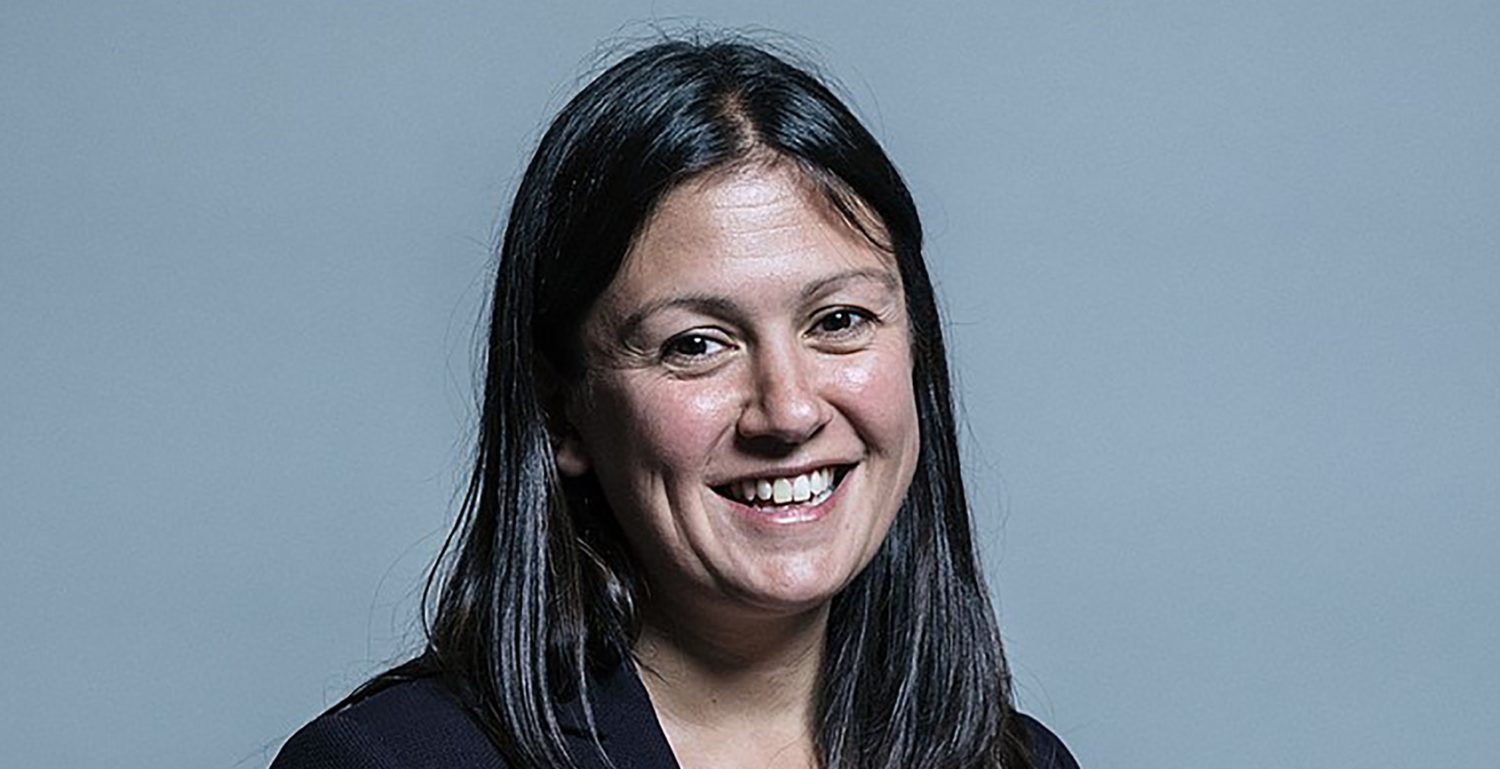Power player
Anger and despair have scarred our country and our politics. But it doesn’t have to be that way, says Lisa Nandy MP.
For a politician whose focus of late has been anger, division and despair, Lisa Nandy is surprisingly optimistic. It is a difficult time, she admits, to be a progressive politician and to give people who are struggling a sense of hope. But nonetheless, for the first time in years, change looks within reach. “This is a very, very bleak time in politics, it’s a very worrying time,” she says. “But there is an opportunity now for Labour to unite the two very divided parts of the country in a shared agenda that actually genuinely empowers people to be able to make decisions about their own lives.”
Nandy, once shadow energy secretary, famously stepped down from Jeremy Corbyn’s shadow cabinet after less than a year in the job. But her decision was, she explains, not prompted by unease about Labour’s direction of travel. “I’ve always been on the left of the party. It was never a disagreement with the policy agenda that led me to resign from the front bench,” she says.
“In fact it was the lack of willingness from any part of the parliamentary party, including the leadership, to stop the factional infighting that led me to conclude it was completely unsustainable. Although I’m on the left of the party I’ve always felt that Labour’s great strength comes from the breadth of our traditions which gives us the ability to reach into and hear what communities are trying to tell us and reflect that in the national debate.”
So – after her resignation and away from what she calls the ‘gruelling’ demands of frontbench life – Nandy felt the biggest contribution she could make was to do some of that reaching out and listening. Her new mission led her – with politics professor Will Jennings and data analyst Ian Warren – to set up the Centre for Towns, an organisation dedicated to researching the state of our towns across England, Scotland and Wales. It’s an issue close to her heart: as MP for Wigan she speaks with passion about the town and the way she feels it has been let down over decades. The demise of traditional industries has led to a slide in the working age population while the ‘zero-hours, zero-hope’ jobs which have replaced the mines and factories have meant there is less money around to keep towns thriving. “The spending power just isn’t there to sustain our high streets and to sustain the community institutions that act as social glue – the beating heart of communities whether it’s pubs, libraries, leisure centres or youth clubs,” Nandy says. “Close communities are coming undone and the scars are visible everywhere.”
The result, she says, is real anger and disillusionment, sentiments which laid the foundations for the Brexit vote. “Too many people believe Brexit is the root cause of the divisions, but actually we were becoming a much more divided country beforehand,” she says. “At the most extreme, there is no sense of hope to be found anywhere in some of the hardest hit towns and in those areas it’s no surprise that you start to grapple with despair and anger with the political establishment, where the sort of messages that Nigel Farage and his colleagues were peddling during the referendum about political elites were much more likely to find a home.”
Neither Conservatives, who under Thatcher refused to rebuild the towns hit by job losses and then New Labour, which chose to concentrate investment in cities ‘in the hope that the benefits would trickle to the surrounding towns’ delivered for those communities. And as the decline took hold, so deep divisions emerged between the people who live in towns and their metropolitan counterparts. “On almost every major issue over the last 40 years towns and cities have been growing apart,” says Nandy. “It’s not just attitudes to the EU, it’s also attitudes towards immigration, social security, LGBT rights and civil rights. On all these issues, 40 years ago towns and cities held similar views and now they are poles apart on all of those areas and it creates real electoral dilemmas, particularly for the Labour party where we are trying to talk at once to social liberals and social conservatives.”
Despite the difficulties, Nandy says this is a challenge Labour must face head-on. “This is a dilemma for Labour but Labour’s dilemma is the country’s dilemma,” she argues. “These divisions are evident right across UK and there’s no future for this country that doesn’t bring those two sides back together.”
Labour is in a strong position to deliver for both the most socially conservative and socially liberal, she believes, because of its roots in communities up and down the country. “Look at somewhere like David Lammy’s Tottenham and my Wigan. One is diverse, one is homogenous; one is young, one is old; one was remain-voting, one was leave-voting; one is socially liberal, one is socially conservative – but what they do have in common is Labour. Consistently and over many decades people have gone out and voted Labour and vote for us still even following the referendum. It suggests to me there is a common ground on which a future can be built that looks very much like Labour values of solidarity, compassion, strong public services and a global future but with far more local control.”
So where to start? Nandy believes the first priority for towns must be jobs – and not just any jobs, but good jobs. People in Wigan or Barnsley are proud of the mining heritage of their towns, but wouldn’t want a return to that kind of job for their children or grandchildren. But nor do they want their youngsters to go into the low-skill, low-wage jobs that many are forced to accept. In contrast, Nandy points to Silicon Valley in the US, where a combination of government intervention to create a market, tax breaks and apprenticeships has allowed the area to become a world leader in clean energy. “Their young people are developing the battery technology of the future while young people in Barnsley are assembling solar panels for the minimum wage and packing boxes in ASOS,” she says. “Those communities are angry because they know the future could be better than that. Why shouldn’t they have the opportunity to power us through the next generation like their parents and grandparents powered us through the last?”
Jobs though, will require investment in the infrastructure that will pave the way for economic growth. And there we come to Nandy’s second priority for the future of towns: power. Too many decisions on issues like transport and skills are made “hundreds of miles away by people who have no skin in the game, who look at towns and see only problems when we see potential”, she says. “Those decisions about infrastructure and skills have to be taken much closer to home and have to be much more responsive to the ambitions of the local community. The solution for Wigan is never going to be the same as the solution for Grimsby, so it relies on those decisions being powered from the bottom up rather than being imposed from the top down.”
Labour will need to be committed to more meaningful devolution than just “simply transferring power from one group of men in Whitehall to another group of men in Manchester town hall”.
“That is exactly the same city-centred model of investment, growth and political power that has failed to deliver for our towns for so long and has been so soundly rejected by the people that live in them,” she adds.
Nandy is confident that Labour’s ministers-in-waiting understand this and indeed she has been talking to some of them about what a real transfer of power to communities might look like. But she admits: “There’s always this tension in the Labour party that when we are in opposition, we tend to be quite keen on restoring power back to the people who rightfully own it and then when we reach government we become centralisers again. This is a historic tension within the party and in recent decades the centralising tendency has won out – but I think that would be a real mistake. My experience of working with Westminster and Whitehall is that they are not capable of seeing the potential – they see only problems. It’s only by looking at the assets and strengths in our communities that we’ll deliver on their ambitions.”
In some ways, Nandy feels, opposition has been good for Labour in allowing it to think about some of these really big questions that will define the country’s future. Now that these questions – about power and the nature of the economy and who benefits – are on the agenda, “politics feels political in a way that it hasn’t been in recent decades and that feels exciting”. And while national politics has in many respects – like the country as a whole – become more angry and divided, she senses a mood on the ground for change. “Labour conference for me this year felt tremendously exciting because there was a willingness to grapple with some of those questions about power and where it lies, about the structure of economy and about the future of a Britain that is prepared to look outwards and is also concerned to address the concerns of people at a very local level,” she says. “For all of the division that’s reflected in the national political debate, when I speak to Labour party members what I find is a pragmatism and willingness to reach out and to listen that is lacking from the national debate.”
Yet after Labour’s unexpectedly strong performance in last year’s general election, some would argue that impetus has been lost, as Brexit has dominated the national debate. Again, Nandy prefers to focus on the big picture.
“It feels like we’ve taken what was a political earthquake, a roar of noise from across the country during the referendum and turned it into a technical and legal debate around the withdrawal agreement and a set of trading arrangements that are important but are in danger of completely missing the point,” she says. “That big question about who we are as a country, where are we going and what is the basis for a decent shared life in this country is one that we’ve got to grapple with and got to be able to answer convincingly. I do feel optimistic about the prospects of Labour being able to do that but it needs all of our energy and creativity.”
We are in a moment, she says, where many of the assumptions that have held good for decades have been demolished. “Neoliberalism has collapsed – there is no appetite among the public any more for that idea that you can have a small group of people who are immensely wealthy and some trickle-down to try and protect people at the bottom,” she says. “It is no longer sustainable that you can deny large swathes of the country real agency and control over their own lives.”
In that sense then, perhaps the anger and despair that are so evident in our towns and beyond really can bring positive change. Nandy certainly thinks so. “In the end the hope comes from the public – they got there ahead of us, they saw things had to change before we did and now our job is to give shape and voice to what comes next.”


